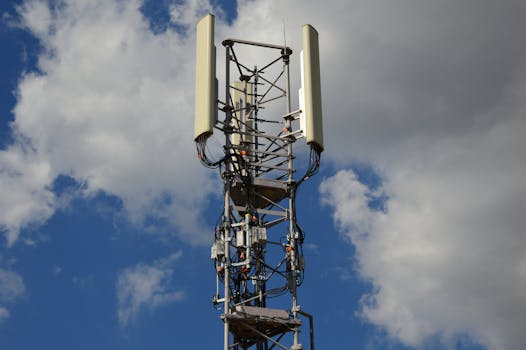5G Technology Advancements and Impact on Mobile Networks

5G Technology Advancements and Impact on Mobile Networks
5G technology advancements have been at the forefront of the telecommunications industry in recent years, transforming the way we interact with mobile networks. The fifth generation of wireless technology has brought about significant improvements in speed, latency, and connectivity, enabling a wide range of innovative applications and services. In this article, we will explore the recent developments in 5G technology and its profound impact on mobile networks.
The rollout of 5G networks has been gaining momentum worldwide, with many countries investing heavily in the deployment of 5G infrastructure. The 5G network architecture is designed to support a vast number of devices, from smartphones and laptops to smart home appliances and industrial sensors. This has led to the creation of new business models, such as smart cities, IoT, and mission-critical communications.
Advancements in 5G Technology
Several recent advancements in 5G technology have contributed to its growing adoption. One of the key developments is the use of millimeter wave (mmWave) spectrum, which offers faster data transfer rates and lower latency. mmWave technology operates on a higher frequency band, typically between 24 GHz and 90 GHz, allowing for greater bandwidth and capacity. Another significant advancement is the implementation of network slicing, which enables multiple independent networks to coexist on the same physical infrastructure. This allows for greater flexibility and customization, enabling mobile network operators to offer tailored services to different industries and applications.
Artificial intelligence (AI) and machine learning (ML) are also playing a crucial role in 5G network management. AI-powered network management systems can analyze vast amounts of data, detecting anomalies and optimizing network performance in real-time. This enables mobile network operators to provide a more reliable and efficient service, reducing downtime and improving overall user experience.
Impact on Mobile Networks
The impact of 5G technology on mobile networks has been profound, enabling a wide range of new applications and services. One of the most significant effects is the enablement of IoT devices, which can now communicate with each other and the cloud in real-time. This has led to the development of smart cities, where IoT sensors and devices can monitor and manage urban infrastructure, such as traffic management, energy consumption, and waste management.
5G technology has also revolutionized the entertainment industry, enabling the streaming of high-definition video and virtual reality (VR) content. The low latency and high-speed connectivity of 5G networks make it possible to stream VR content in real-time, creating a more immersive and interactive experience for users. Additionally, 5G has enabled the development of mission-critical communications, such as remote healthcare and public safety services, which require ultra-reliable and low-latency connectivity.
Conclusion
In conclusion, 5G technology advancements have transformed the mobile network landscape, offering unparalleled speeds, lower latency, and greater connectivity. The recent developments in mmWave technology, network slicing, AI, and ML have contributed to the growing adoption of 5G networks worldwide. As 5G continues to evolve and improve, we can expect to see even more innovative applications and services emerge, revolutionizing industries and transforming the way we live and work. The impact of 5G technology on mobile networks will be felt for years to come, and it is essential for mobile network operators, industries, and governments to invest in the development and deployment of 5G infrastructure to stay ahead of the curve.




